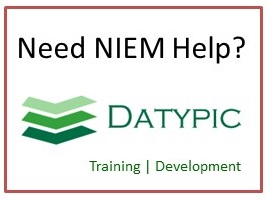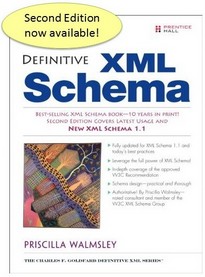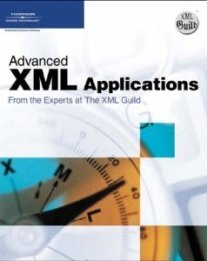gml:MultiCurveCoverage
In a gml:MultiCurveCoverage the domain is partioned into a collection of curves comprising a gml:MultiCurve. The coverage function then maps each curve in the collection to a value in the range set. The content model is identical with gml:DiscreteCoverageType, but that gml:domainSet shall have values gml:MultiCurve. In a gml:MultiCurveCoverage the mapping from the domain to the range is straightforward. - For gml:DataBlock encodings the curves of the gml:MultiCurve are mapped in document order to the tuples of the data block. - For gml:CompositeValue encodings the curves of the gml:MultiCurve are mapped to the members of the composite value in document order. - For gml:File encodings the curves of the gml:MultiCurve are mapped to the records of the file in sequential order.
Element information
Namespace: http://www.opengis.net/gml/3.2
Schema document: external/ogc/gml/3.2.1/coverage.xsd
Type: gml:DiscreteCoverageType
Properties: Global, Qualified
Content
- Sequence [1..1]
- gml:metaDataProperty [0..*]
- gml:description [0..1]The value of this property is a text description of the object. gml:description uses gml:StringOrRefType as its content model, so it may contain a simple text string content, or carry a reference to an external description. The use of gml:description to reference an external description has been deprecated and replaced by the gml:descriptionReference property.
- gml:descriptionReference [0..1]The value of this property is a remote text description of the object. The xlink:href attribute of the gml:descriptionReference property references the external description.
- gml:identifier [0..1]Often, a special identifier is assigned to an object by the maintaining authority with the intention that it is used in references to the object For such cases, the codeSpace shall be provided. That identifier is usually unique either globally or within an application domain. gml:identifier is a pre-defined property for such identifiers.
- gml:name [0..*]The gml:name property provides a label or identifier for the object, commonly a descriptive name. An object may have several names, typically assigned by different authorities. gml:name uses the gml:CodeType content model. The authority for a name is indicated by the value of its (optional) codeSpace attribute. The name may or may not be unique, as determined by the rules of the organization responsible for the codeSpace. In common usage there will be one name per authority, so a processing application may select the name from its preferred codeSpace.
- gml:boundedBy [0..1]This property describes the minimum bounding box or rectangle that encloses the entire feature.
- Choice [0..1]from subst. group gml:location
- Choice [1..1]
- gml:domainSetThe gml:domainSet property element describes the spatio-temporal region of interest, within which the coverage is defined. Its content model is given by gml:DomainSetType. The value of the domain is thus a choice between a gml:AbstractGeometry and a gml:AbstractTimeObject. In the instance these abstract elements will normally be substituted by a geometry complex or temporal complex, to represent spatial coverages and time-series, respectively. The presence of the gml:AssociationAttributeGroup means that domainSet follows the usual GML property model and may use the xlink:href attribute to point to the domain, as an alternative to describing the domain inline. Ownership semantics may be provided using the gml:OwnershipAttributeGroup.
- gml:multiPointDomain
- gml:multiCurveDomain
- gml:multiSurfaceDomain
- gml:multiSolidDomain
- gml:gridDomain
- gml:rectifiedGridDomain
from subst. group gml:domainSet - gml:rangeSet [1..1]The gml:rangeSet property element contains the values of the coverage (sometimes called the attribute values). Its content model is given by gml:RangeSetType. This content model supports a structural description of the range. The semantic information describing the range set is embedded using a uniform method, as part of the explicit values, or as a template value accompanying the representation using gml:DataBlock and gml:File. The values from each component (or "band") in the range may be encoded within a gml:ValueArray element or a concrete member of the gml:AbstractScalarValueList substitution group . Use of these elements satisfies the value-type homogeneity requirement.
- gml:coverageFunction [0..1]The gml:coverageFunction property describes the mapping function from the domain to the range of the coverage. The value of the CoverageFunction is one of gml:CoverageMappingRule and gml:GridFunction. If the gml:coverageFunction property is omitted for a gridded coverage (including rectified gridded coverages) the gml:startPoint is assumed to be the value of the gml:low property in the gml:Grid geometry, and the gml:sequenceRule is assumed to be linear and the gml:axisOrder property is assumed to be "+1 +2".
from type gml:AbstractGMLTypefrom group gml:StandardObjectPropertiesfrom type gml:AbstractFeatureTypefrom type gml:AbstractCoverageType
Attributes
| Name | Occ | Type | Description | Notes |
|---|---|---|---|---|
| gml:id | [1..1] | xsd:ID | The attribute gml:id supports provision of a handle for the XML element representing a GML Object. Its use is mandatory for all GML objects. It is of XML type ID, so is constrained to be unique in the XML document within which it occurs. | from type gml:AbstractGMLType |
Used in
- Type geo:FeatureType (Elements geo:Feature, geo:LocationFeature)
- Type gml:ArrayAssociationType (Element gml:members)
- Type gml:FeatureArrayPropertyType (Element gml:featureMembers)
- Type gml:FeaturePropertyType (Elements gml:featureMember, gml:featureProperty)
- Type gml:ProcedurePropertyType (Element gml:using)
- Type gml:TargetPropertyType (Elements gml:target, gml:subject)
Substitution hierarchy
- gml:AbstractObject
- can be substituted with gml:AbstractGML
- can be substituted with gml:AbstractFeature
- can be substituted with gml:AbstractCoverage
- can be substituted with gml:AbstractDiscreteCoverage
- can be substituted with gml:MultiCurveCoverage
- can be substituted with gml:AbstractDiscreteCoverage
- can be substituted with gml:AbstractCoverage
- can be substituted with gml:AbstractFeature
- can be substituted with gml:AbstractGML
Sample instance
<gml:MultiCurveCoverage gml:id="ID"> <gml:metaDataProperty> <gml:GenericMetaData>Any text, intermingled with: <!--any element--> </gml:GenericMetaData> </gml:metaDataProperty> <gml:description>string</gml:description> <gml:descriptionReference/> <gml:identifier codeSpace="http://www.example.com/">string</gml:identifier> <gml:name>string</gml:name> <gml:boundedBy> <gml:Envelope> <gml:lowerCorner>1.0 1.0</gml:lowerCorner> <gml:upperCorner>1.0 1.0</gml:upperCorner> </gml:Envelope> </gml:boundedBy> <gml:location> <gml:MultiGeometry gml:id="ID"> <gml:metaDataProperty>... </gml:metaDataProperty> <gml:description>string</gml:description> <gml:descriptionReference/> <gml:identifier codeSpace="http://www.example.com/">string</gml:identifier> <gml:name>string</gml:name> <gml:geometryMember>... </gml:geometryMember> <gml:geometryMembers>... </gml:geometryMembers> </gml:MultiGeometry> </gml:location> <gml:domainSet> <gml:MultiGeometry gml:id="ID"> <gml:metaDataProperty>... </gml:metaDataProperty> <gml:description>string</gml:description> <gml:descriptionReference/> <gml:identifier codeSpace="http://www.example.com/">string</gml:identifier> <gml:name>string</gml:name> <gml:geometryMember>... </gml:geometryMember> <gml:geometryMembers>... </gml:geometryMembers> </gml:MultiGeometry> </gml:domainSet> <gml:rangeSet> <gml:ValueArray gml:id="ID" uom=""> <gml:metaDataProperty>... </gml:metaDataProperty> <gml:description>string</gml:description> <gml:descriptionReference/> <gml:identifier codeSpace="http://www.example.com/">string</gml:identifier> <gml:name>string</gml:name> <gml:valueComponent>... </gml:valueComponent> <gml:valueComponents>... </gml:valueComponents> </gml:ValueArray> </gml:rangeSet> <gml:coverageFunction> <gml:MappingRule>string</gml:MappingRule> </gml:coverageFunction> </gml:MultiCurveCoverage>



